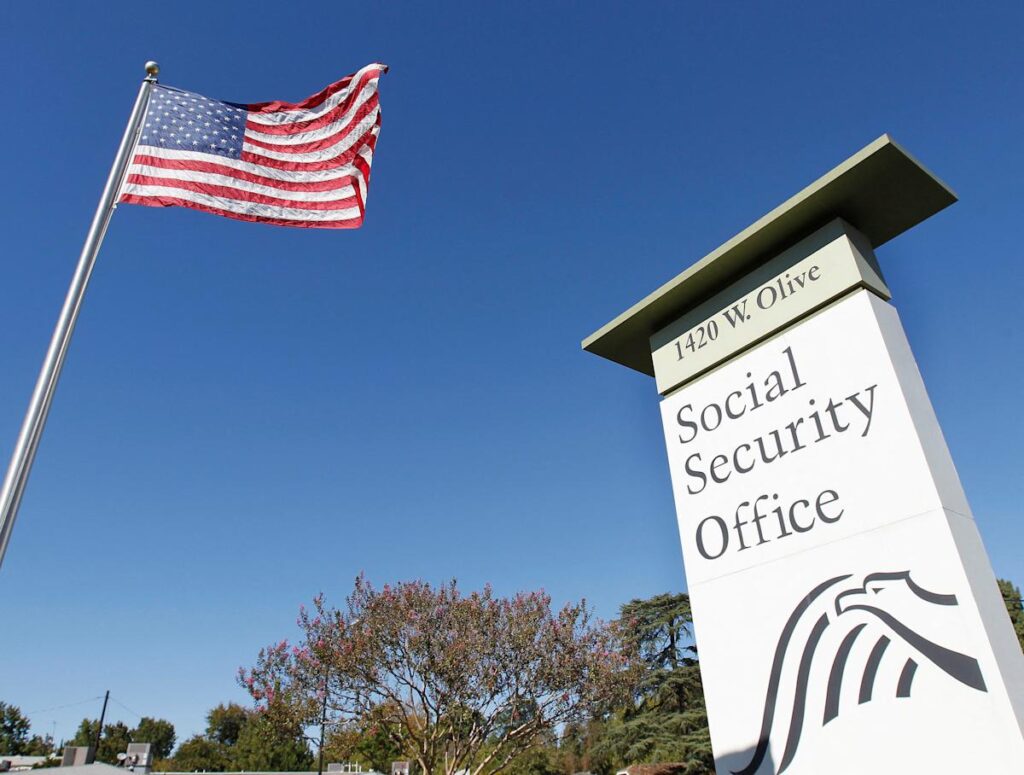
ACLU DOGE Lawsuit: Civil Liberties Group Sues Federal Agencies for Transparency
ACLU DOGE Lawsuit: Civil Liberties Group Sues Federal Agencies for Transparency
Reading Time: 5 minutes
The ACLU has filed a lawsuit against federal agencies seeking transparency about DOGE’s data access | Photo Credit: Getty Images
The American Civil Liberties Union (ACLU) has taken legal action against federal agencies in what is being called the ACLU DOGE lawsuit. The civil liberties organization is seeking transparency regarding what information the Department of Government Efficiency (DOGE) has accessed from government databases. This legal challenge specifically targets the Social Security Administration (SSA) and the Department of Veterans Affairs (VA) for failing to adequately respond to Freedom of Information Act (FOIA) requests filed in February 2025.
Table of Contents
ACLU FOIA Requests and Agency Responses
The ACLU DOGE lawsuit comes after both federal agencies failed to properly respond to FOIA requests. According to the ACLU’s press release, the Social Security Administration denied their request for expedited processing and has not responded to the subsequent appeal. Meanwhile, the Department of Veterans Affairs reportedly took no action whatsoever on the FOIA request, prompting the civil liberties organization to escalate to litigation.
The ACLU DOGE lawsuit highlights a growing concern about government transparency and accountability regarding the activities of the Musk-led efficiency department. By filing this legal action, the ACLU aims to compel these agencies to disclose what information DOGE members may have accessed and how it might be used.
This legal action represents a significant escalation in efforts to obtain information about DOGE’s activities. The ACLU’s decision to file the ACLU DOGE lawsuit indicates the organization views this matter as having substantial implications for citizens’ privacy rights and government accountability.
Information Sought in the ACLU DOGE Lawsuit
Through the ACLU DOGE lawsuit, the organization is specifically seeking records that would reveal whether DOGE members have gained access to databases containing personally identifying information about American citizens. This includes sensitive data housed within the Social Security Administration and the Department of Veterans Affairs, which maintain extensive records on millions of Americans, including financial, medical, and personal information.
Additionally, the FOIA requests at the center of the ACLU DOGE lawsuit aim to determine if artificial intelligence technologies are being employed to analyze government data. This aspect of the inquiry raises further questions about potential privacy implications and algorithmic decision-making that could affect citizens’ benefits, rights, or government interactions.
Records Requested
The ACLU DOGE lawsuit seeks two primary categories of records: documentation of DOGE access to personal information databases and evidence of AI implementation for government data analysis. Both represent significant privacy and oversight concerns that the ACLU argues the public has a right to know about.
Civil Liberties Concerns About DOGE Access
Nathan Freed Wessler, deputy director of the ACLU’s Speech, Privacy and Technology Project, articulated the urgency behind the ACLU DOGE lawsuit. “The federal government cannot dodge accountability by ignoring our lawful demands for transparency,” Wessler stated in the organization’s press release.
Highlighting the stakes involved, Wessler continued: “The American people have an urgent need to know if their private financial, medical and personal records are being illegally accessed, analyzed or weaponized by Trump’s unaccountable team of unvetted outsiders. This is doubly true for our seniors and veterans, who are at particular risk if their data has been accessed illegally.”
This statement captures the core civil liberties concerns driving the ACLU DOGE lawsuit – the possibility that individuals who are not properly vetted government employees may have access to highly sensitive personal information, potentially without proper oversight or legal authorization.
| Agency | FOIA Request Status | ACLU Action |
|---|---|---|
| Social Security Administration | Denied expedited processing; no response to appeal | Included in ACLU DOGE lawsuit |
| Department of Veterans Affairs | No action taken on request | Included in ACLU DOGE lawsuit |
| Other Federal Agencies | FOIA requests submitted | Not currently part of lawsuit |
DOGE Activities and Previous Legal Challenges
The ACLU DOGE lawsuit comes amid broader scrutiny of the Department of Government Efficiency’s activities across federal agencies. DOGE, headed by tech billionaire Elon Musk, has been leading initiatives to reduce the federal workforce, including at agencies that oversee Musk’s own business enterprises such as Tesla and SpaceX, creating what critics describe as potential conflicts of interest.
The ACLU DOGE lawsuit is not the first legal challenge related to DOGE’s activities. Other lawsuits have previously been filed to prevent non-civil servants from accessing sensitive government data. These legal challenges reflect widespread concern about the appropriate boundaries for external advisors’ involvement in government operations, particularly when it comes to accessing protected information.
Pattern of Legal Challenges
The ACLU DOGE lawsuit follows a pattern of legal actions seeking to establish clear boundaries around DOGE’s authority and access. This growing body of litigation suggests significant uncertainty about the legal framework governing DOGE’s operations and authorities.
Allegations of Circumventing Court Orders
One of the more concerning allegations related to the ACLU DOGE lawsuit involves reports that DOGE members may have attempted to circumvent court orders limiting their access to sensitive information. According to reports referenced by the ACLU, there have been allegations that DOGE representatives have sought workarounds to judicial limitations on their data access capabilities.
These allegations add urgency to the ACLU DOGE lawsuit, as they suggest potential disregard for legal constraints designed to protect sensitive information. If proven true, such actions would raise serious questions about respect for the rule of law and the separation of powers within government operations.
The Washington Post has reportedly documented instances where DOGE members allegedly sought to bypass judicial restrictions specifically related to Social Security data, further reinforcing the ACLU’s concerns about potential unauthorized access to sensitive personal information.
Implications for Government Transparency and Privacy
The ACLU DOGE lawsuit represents a significant test case for government transparency and accountability in the digital age. At its core, the lawsuit addresses the fundamental tension between government efficiency initiatives and the protection of citizens’ privacy and civil liberties.
If successful, the ACLU DOGE lawsuit could establish important precedents for transparency regarding external advisors’ access to government databases. It could also help clarify the legal boundaries for initiatives like DOGE that operate at the intersection of government and private sector expertise.
Broader Context
The ACLU DOGE lawsuit should be understood within the broader context of ongoing debates about data privacy, government transparency, and the role of private sector actors in government operations. These issues transcend partisan politics and touch on fundamental questions about democratic governance in the digital age.
For veterans, Social Security recipients, and other Americans whose data may be at stake, the outcome of the ACLU DOGE lawsuit could have direct implications for how their personal information is protected and who has access to it. The case highlights the critical importance of maintaining appropriate safeguards around sensitive personal data, even in the context of government efficiency initiatives.
As the ACLU DOGE lawsuit progresses through the legal system, it will likely shed light on the complex interplay between government efficiency, legal compliance, and the protection of civil liberties in contemporary governance. The resolution of this case could significantly influence how similar initiatives are structured and overseen in the future.





